
Cotonou: The Vibrant Heart of Benin
Cotonou, the economic capital of Benin, is a lively city known for its bustling markets, vibrant culture, and stunning coastline. Visitors are often enchanted by the blend of traditional and modern elements that give Cotonou its unique charm. The city serves as a gateway to exploring the rich history and culture of Benin, offering a mix of experiences that cater to all types of travelers. One of the highlights of Cotonou is the Dantokpa Market, one of the largest open-air markets in West Africa. Here, you can find everything from local crafts and textiles to fresh produce and exotic spices. The market is a sensory overload, with its colorful stalls, the aroma of street food, and the lively banter of vendors. It's a must-visit for anyone looking to experience the local culture up close. Cotonou's coastline is another major attraction. The city's beaches offer a perfect escape from the hustle and bustle, with golden sands and clear blue waters. Fidjrosse Beach is particularly popular, known for its relaxed atmosphere and picturesque views. Whether you're looking to sunbathe, swim, or simply enjoy a beachside meal, Cotonou's beaches are a great place to unwind. The city's vibrant nightlife is also worth exploring. From lively bars and nightclubs to cultural performances and live music, there's always something happening after dark. Cotonou is a city that never sleeps, offering endless entertainment options for both locals and visitors alike.
Local tips in Cotonou
- Visit Dantokpa Market early in the morning to avoid the crowds and heat.
- Use local taxis or moto-taxis for short trips around the city; they're both affordable and convenient.
- Try the local cuisine, especially dishes like Akassa and Pounded Yam, at street food stalls for an authentic experience.
- Keep some cash on hand, as not all places accept credit cards.
- Learn a few basic phrases in French, as it's the official language and widely spoken.
Neighbourhoods in Cotonou
Cotonou: The Vibrant Heart of Benin
Cotonou, the economic capital of Benin, is a lively city known for its bustling markets, vibrant culture, and stunning coastline. Visitors are often enchanted by the blend of traditional and modern elements that give Cotonou its unique charm. The city serves as a gateway to exploring the rich history and culture of Benin, offering a mix of experiences that cater to all types of travelers. One of the highlights of Cotonou is the Dantokpa Market, one of the largest open-air markets in West Africa. Here, you can find everything from local crafts and textiles to fresh produce and exotic spices. The market is a sensory overload, with its colorful stalls, the aroma of street food, and the lively banter of vendors. It's a must-visit for anyone looking to experience the local culture up close. Cotonou's coastline is another major attraction. The city's beaches offer a perfect escape from the hustle and bustle, with golden sands and clear blue waters. Fidjrosse Beach is particularly popular, known for its relaxed atmosphere and picturesque views. Whether you're looking to sunbathe, swim, or simply enjoy a beachside meal, Cotonou's beaches are a great place to unwind. The city's vibrant nightlife is also worth exploring. From lively bars and nightclubs to cultural performances and live music, there's always something happening after dark. Cotonou is a city that never sleeps, offering endless entertainment options for both locals and visitors alike.
When is the best time to go to Cotonou?
Iconic landmarks you can’t miss
General Mathieu Kerekou Friendship Stadium
Experience the lively spirit of Cotonou at General Mathieu Kerekou Friendship Stadium, a hub for sports and cultural events in Benin.
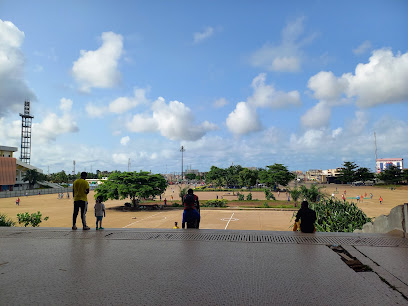
Dantokpa Market
Immerse yourself in the vibrant culture of Cotonou at Dantokpa Market, a bustling hub of local goods, crafts, and delicious culinary experiences.
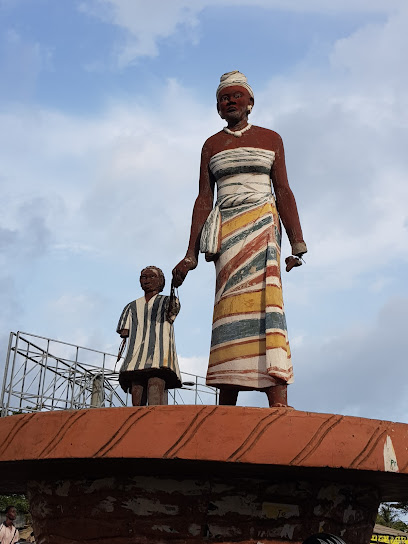
Red Star Square
Discover the vibrant culture and historical significance of Red Star Square in Cotonou, a must-visit landmark for all tourists exploring Benin.
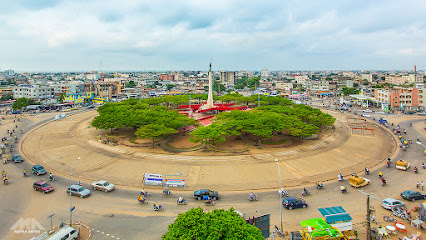
CanalOlympia Wologuèdè
Discover the vibrant cinematic experience at CanalOlympia Wologuède, Cotonou's premier movie theater showcasing global and local films.
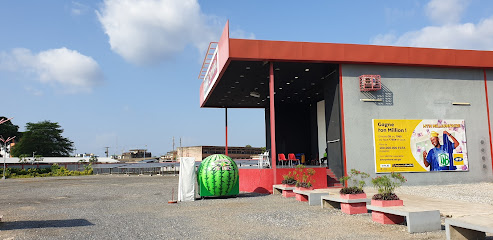
Église Catholique Saint Michel
Explore the spiritual beauty of Église Catholique Saint Michel, an architectural gem in Cotonou reflecting rich heritage and culture.
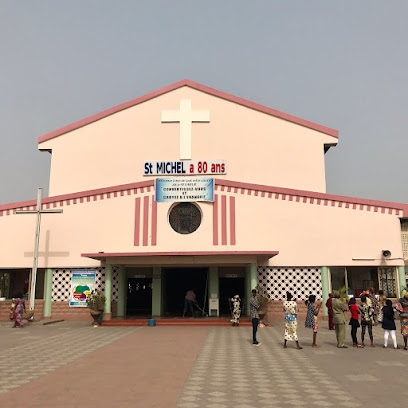
Code Bar
Experience the lively atmosphere and unique cocktails at Code Bar, the heart of Cotonou's nightlife scene, perfect for socializing and entertainment.
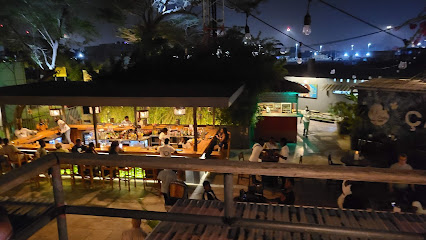
Congress Palace
Discover the Congress Palace in Cotonou - a stunning architectural marvel and premier conference center that reflects the vibrant culture of Benin.
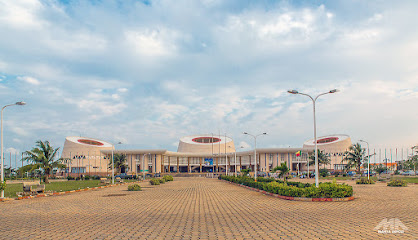
Amazon Statue
Experience the grandeur of the Amazon Statue in Cotonou, a stunning sculpture that embodies the vibrant culture and artistry of West Africa.
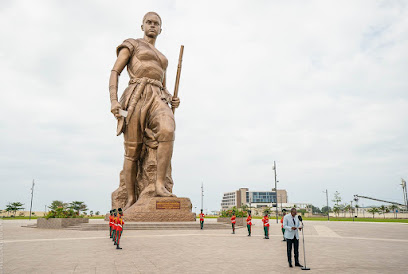
Institut Français du Bénin
Discover the vibrant cultural heritage of Benin at the Institut Français du Bénin, a hub for art, music, and cultural exchange in Cotonou.
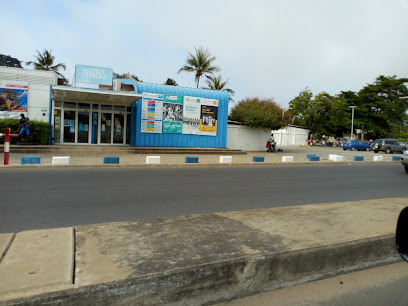
Obama beach
Experience the vibrant atmosphere and authentic cuisine at Obama Beach, a must-visit restaurant in Cotonou, Benin.
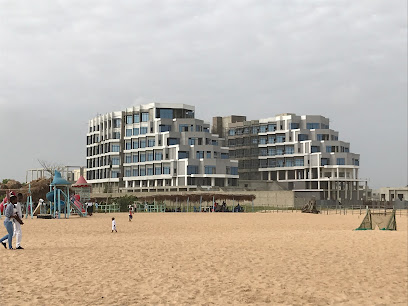
Place du Souvenir, ex Place des Martyrs
Discover the rich history of Benin at Place du Souvenir, a serene landmark honoring the heroes of the past in Cotonou's vibrant heart.
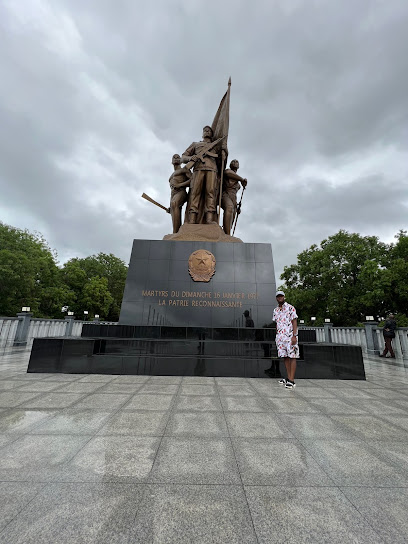
Fidjrossè Beach
Experience the vibrant culture and breathtaking beauty of Fidjrossè Beach in Cotonou, a true coastal gem of Benin.
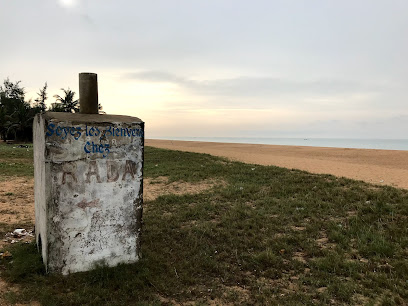
Bulgarian Square Georgi Dimitrov
Experience the vibrant atmosphere of Bulgarian Square Georgi Dimitrov in Cotonou, a cultural hub filled with local cuisine, art, and lively performances.
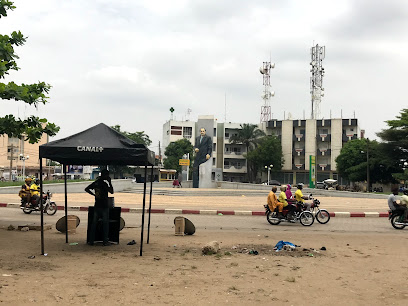
Toffa
Discover Toffa, a captivating place of worship and cultural landmark in Porto-Novo, where history and spirituality intertwine.
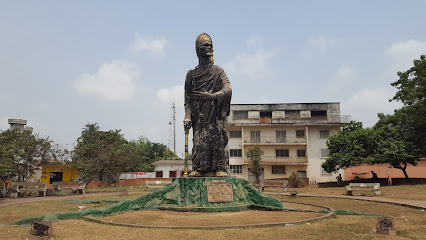
L'Imprévu
Experience the vibrant flavors of Cotonou at L'Imprévu, where local and international cuisines meet in a warm, inviting atmosphere.
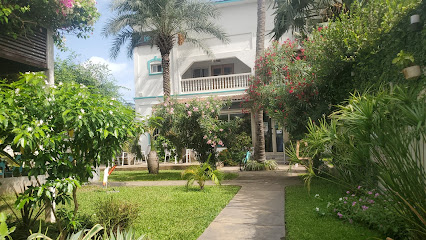
Unmissable attractions to see
General Mathieu Kerekou Friendship Stadium
Experience the vibrant atmosphere of Cotonou's General Mathieu Kerekou Friendship Stadium, where sports and culture come alive in the heart of Benin.
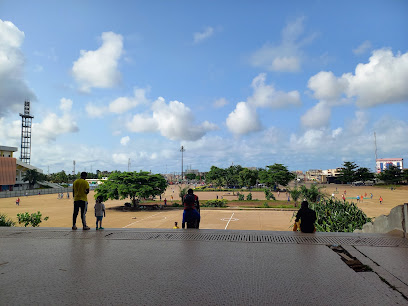
Dantokpa Market
Experience the vibrant culture and local flavors at Dantokpa Market, the largest market in West Africa, in the heart of Cotonou.
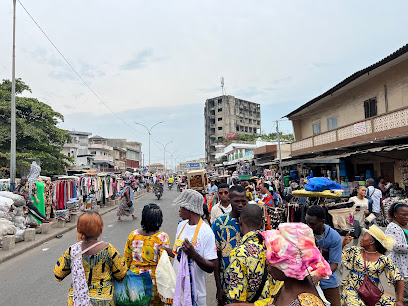
Red Star Square
Explore Red Star Square in Cotonou, a vibrant historical site showcasing Benin's unique architecture and rich cultural heritage.
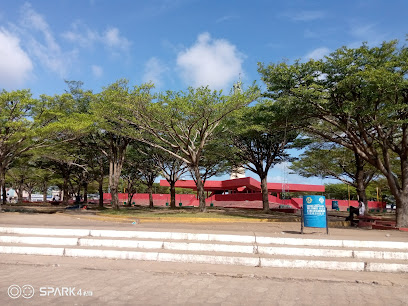
Amazon Statue
Discover the Amazon Statue in Cotonou, a stunning sculpture embodying the spirit of Benin's rich cultural heritage and a must-visit for every traveler.
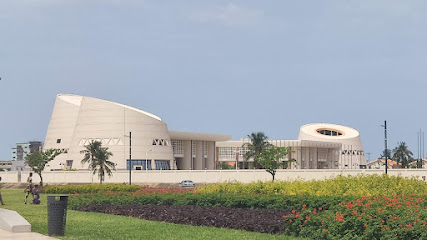
Institut Français du Bénin
Explore the vibrant cultural landscape at Institut Français du Bénin, where art, music, and literature converge in the heart of Cotonou.
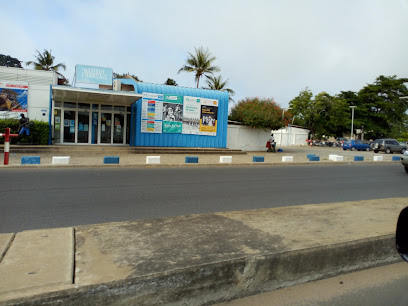
Pythons Temple
Explore the serene Pythons Temple in Ouidah, Benin, where spirituality meets culture in a unique homage to sacred serpents.
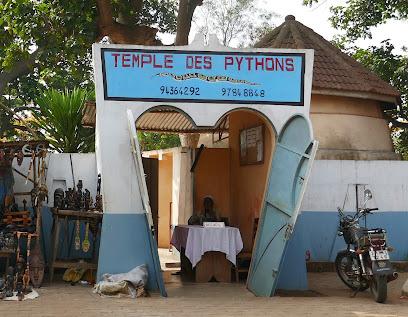
Pythons Temple
Explore Ouidah's Pythons Temple, a sacred site where spirituality and culture intertwine, offering a unique glimpse into the Vodun traditions of Benin.
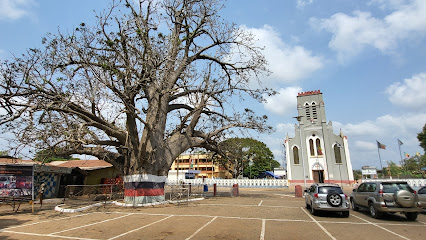
Fidjrossè Beach
Experience the vibrant charm of Fidjrossè Beach, a coastal paradise in Cotonou, perfect for relaxation, local cuisine, and thrilling water activities.
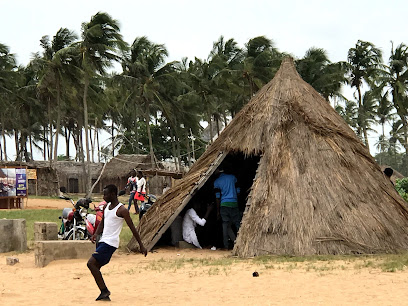
Toffa
Explore Toffa, a historic landmark in Porto-Novo blending spirituality and rich cultural heritage, perfect for tourists seeking history and beauty.
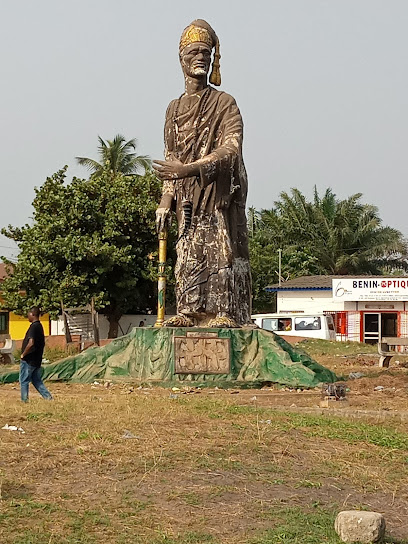
Place Lénine
Discover the cultural heartbeat of Cotonou at Place Lénine, a historical landmark that embodies the essence of Benin's heritage and lively atmosphere.
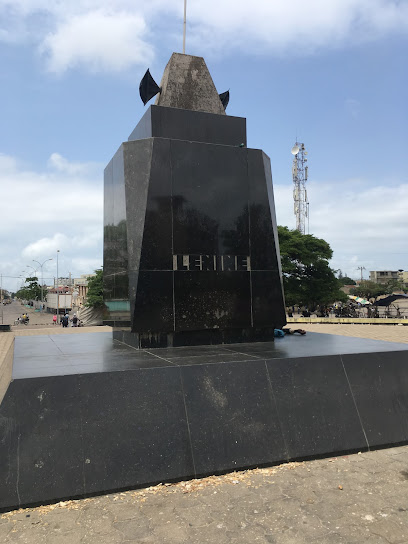
The Museum of the Zinsou Foundation
Explore the vibrant fusion of contemporary African art and culture at the Museum of the Zinsou Foundation in Ouidah, a must-visit destination.
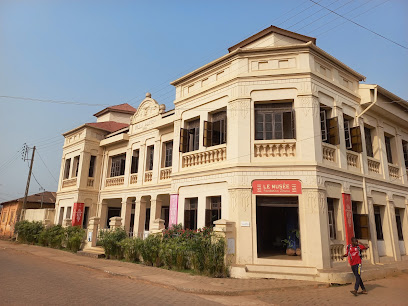
El Dorado Beach Club
Discover fun and relaxation at El Dorado Beach Club in Cotonou, where vibrant activities and a welcoming atmosphere await every visitor.
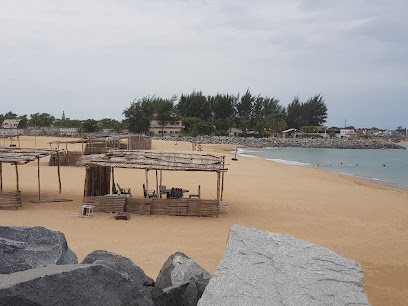
Plage Erevan
Experience the allure of Plage Erevan, a serene beach pavilion in Cotonou, where relaxation meets vibrant local culture and stunning ocean views.
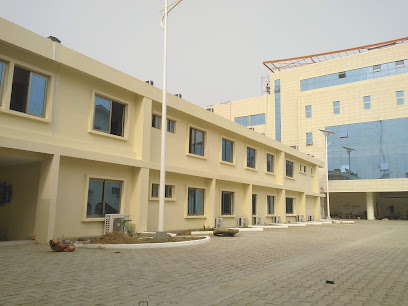
Great Mosque of Zongo
Discover the Great Mosque of Zongo in Cotonou, an architectural gem and spiritual center that showcases the rich Islamic heritage of Benin.
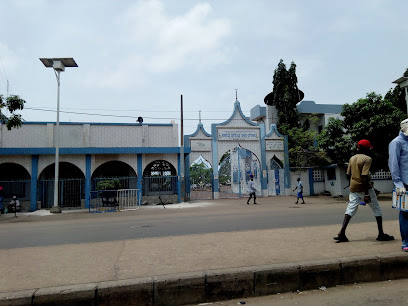
Ouidah Museum of History (Portuguese Fort)
Explore the Ouidah Museum of History, a historic Portuguese fort that reveals Benin's rich cultural heritage and its vital role in the transatlantic slave trade.
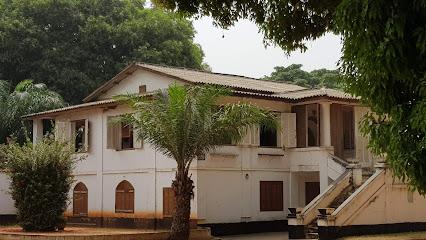
Essential places to dine
Kirikou Restaurant Bar
Experience authentic Beninese cuisine at Kirikou Restaurant Bar in Cotonou, where vibrant flavors meet a welcoming atmosphere.
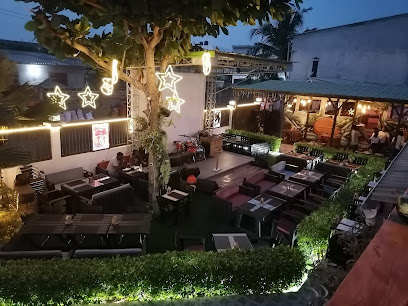
La Cabane du Pêcheur
Experience the vibrant flavors of Benin at La Cabane du Pêcheur - where fresh seafood meets local tradition.
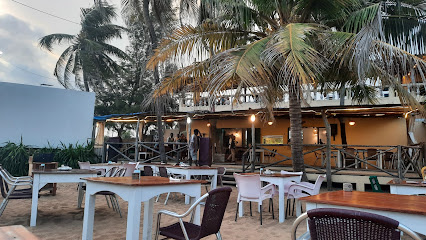
Restaurant Le Teranga
Discover authentic Beninese cuisine with an international twist at Restaurant Le Teranga in Cotonou.
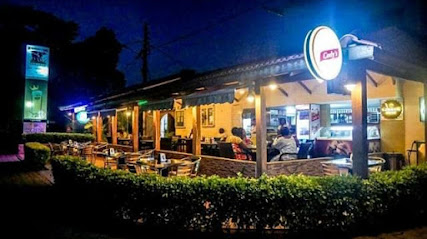
Rïn Restaurant
Discover the flavors of Africa, France, and Japan at Rïn Restaurant in Cotonou - an affordable culinary journey awaits.
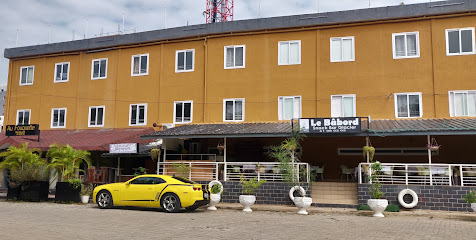
Le Lieu Unique
Experience authentic Beninese flavors at Le Lieu Unique - Cotonou's culinary gem blending tradition with modern flair.
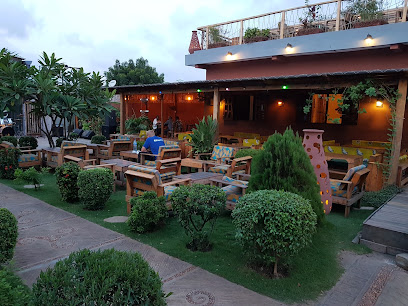
Maquis du port
Discover the vibrant flavors of Benin at Maquis du Port - where culinary traditions meet coastal charm along Cotonou's marina.
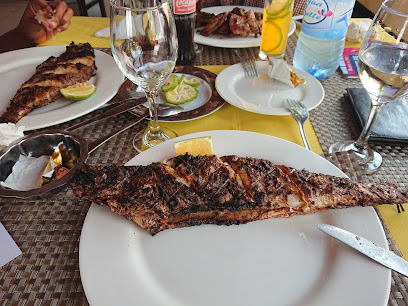
L'Imprévu
Experience culinary excellence at L'Imprévu in Cotonou - where local flavors meet global cuisine in an inviting atmosphere.
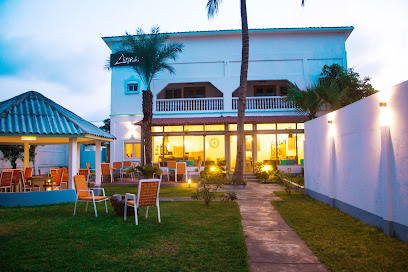
Maquis le Kédjenou (spécialités ivoiriennes)
Discover the vibrant tastes of Côte d'Ivoire at Maquis le Kédjenou in Cotonou - a true culinary experience!
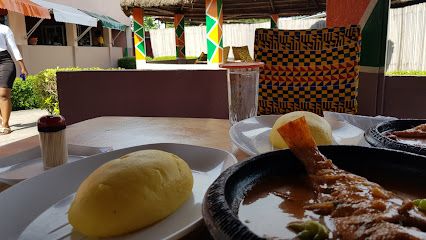
Tandoori Nights
Savor authentic Indian cuisine at Tandoori Nights in Cotonou - where every dish tells a story.
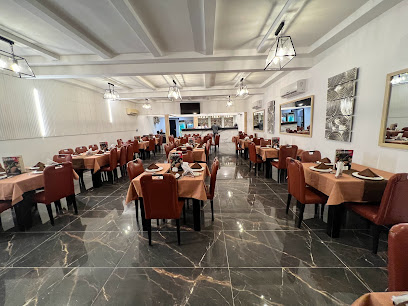
Maquis la Résidence
Experience authentic Beninese cuisine at Maquis la Résidence in Cotonou – where local flavors meet international flair.
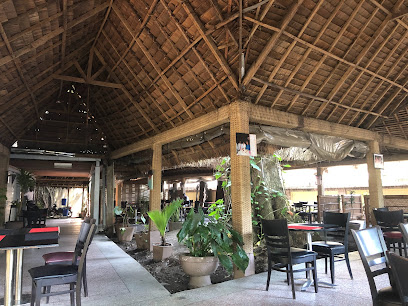
Bangkok Terrasse
Experience authentic Thai cuisine at Bangkok Terrasse - a culinary gem in Cotonou blending tradition with modern flair.
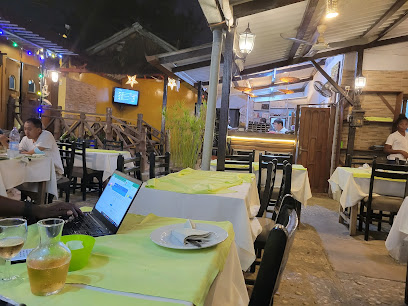
Restaurant Chez Maman Benin
Experience the flavors of Benin at Restaurant Chez Maman, where local ingredients meet warm hospitality in Cotonou's vibrant dining scene.
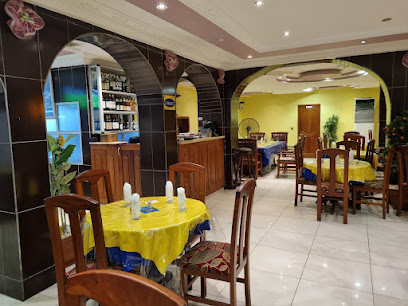
Restaurant Le Berlin
Discover authentic flavors at Restaurant Le Berlin in Cotonou - where local cuisine meets international flair.
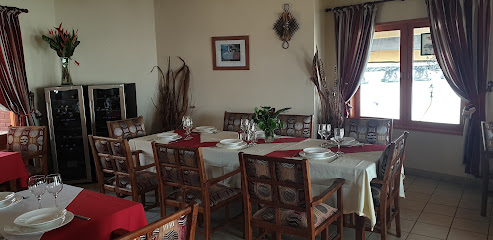
Restaurant Chill n' Grill cotonou
Discover vibrant dining at Chill n' Grill Cotonou - where flavorful grills meet lively entertainment in a cozy atmosphere.
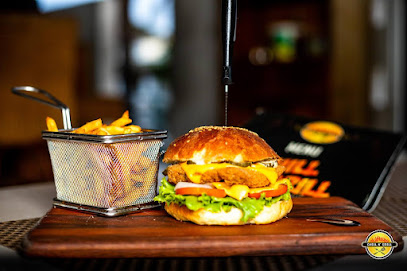
Maquis Super Pili Pili
Discover authentic Beninese cuisine at Maquis Super Pili Pili in Cotonou - where every dish tells a story of flavor and culture.
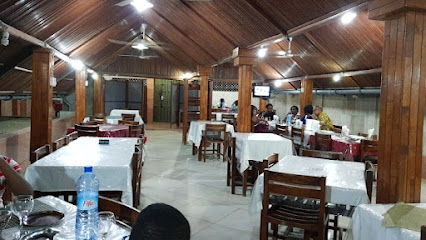
Markets, malls and hidden boutiques
Centre chinois de développement économique et commercial au Bénin
Experience a unique shopping adventure in Cotonou at the Centre Chinois de Développement Économique et Commercial, where culture meets commerce.
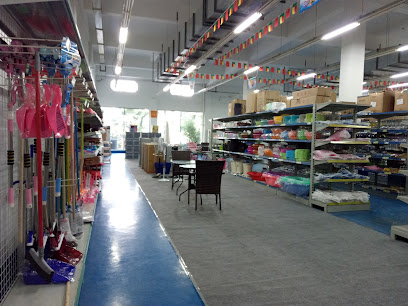
Nanawax Cotonou
Dive into the colorful world of Nanawax Cotonou, where unique handcrafted fashion accessories bring the spirit of Benin to life.
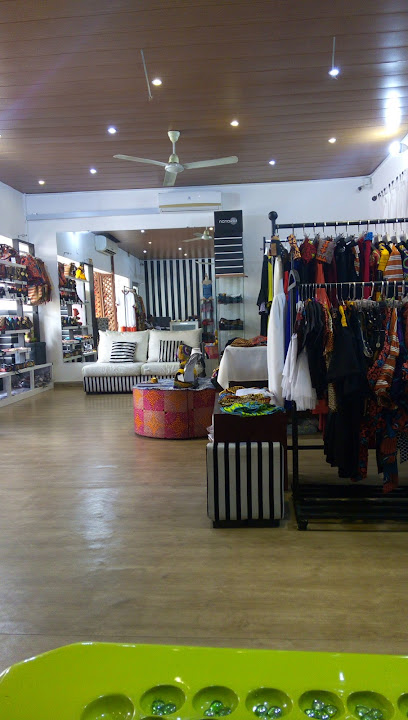
Boutique Vlisco Ganhi
Explore the vibrant world of African textiles at Boutique Vlisco Ganhi, Cotonou's premier destination for unique fabrics and clothing.
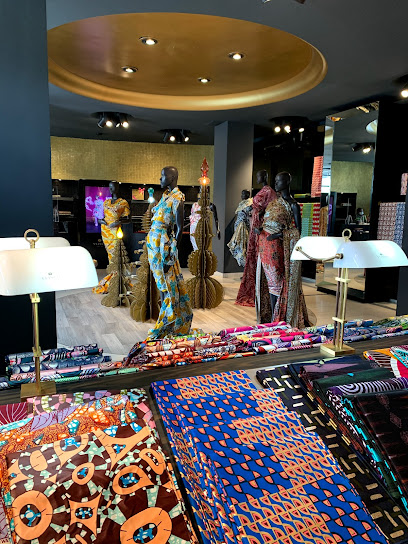
Boutique Samsung Neo
Explore the latest in technology at Boutique Samsung Neo in Cotonou, your go-to destination for all Samsung electronics and innovations.
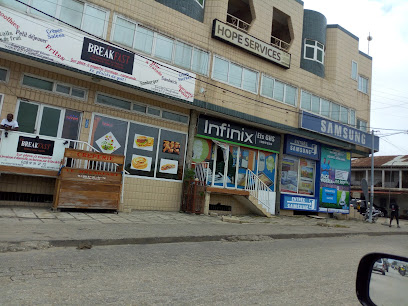
Marché des Arts de Cotonou
Explore Marché des Arts de Cotonou for exquisite handicrafts and authentic souvenirs, showcasing the rich culture of Benin in a vibrant marketplace.
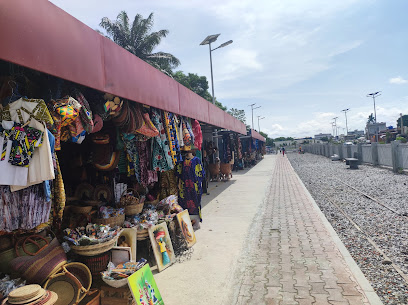
CONCEPT STORE VESTIAIRE ORIGINAL
Explore Concept Store Vestiaire Original for a unique blend of fashion, beauty, and local delicacies in the heart of Cotonou, Benin.
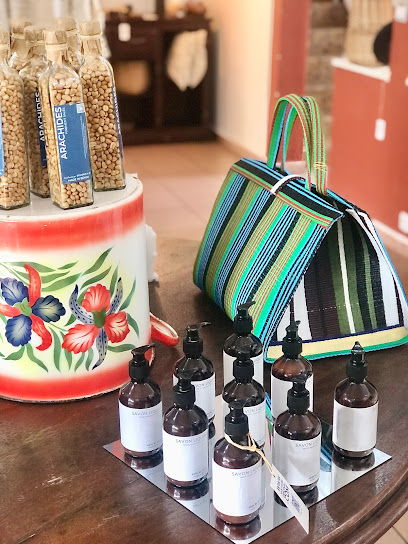
Pret-à-porter Haut De Gamme
Explore the charm of Cotonou at Pret-à-porter Haut De Gamme, your go-to destination for exquisite fashion accessories that reflect style and sophistication.
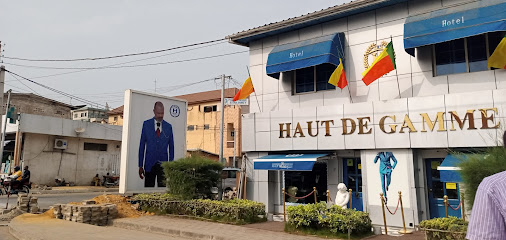
Boutique LOLO Andoche
Explore the vibrant fashion scene at Boutique LOLO Andoche, where unique styles meet local craftsmanship in Cotonou.
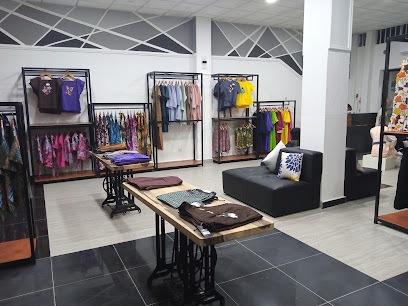
Khali STORE Bénin
Explore Khali STORE Bénin for stylish fashion accessories that celebrate local craftsmanship and vibrant cultural heritage in Cotonou.

NATURAL ADDICT - CONCEPT STORE
Explore Cotonou's Natural Addict for a unique blend of fashion accessories, home goods, and local delicacies in a vibrant shopping experience.
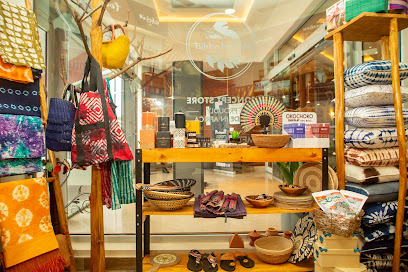
Aulelei
Explore Aulelei, a fashion accessories store that combines style, quality, and ethical shopping for an unforgettable experience.
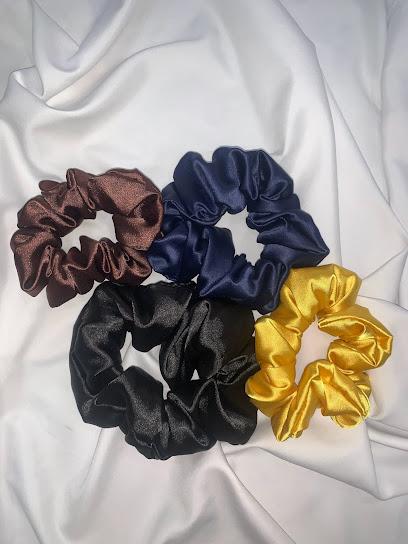
Fashion Room Jonquet
Discover the essence of Cotonou's fashion at Fashion Room Jonquet, where local craftsmanship meets contemporary style in a vibrant boutique setting.
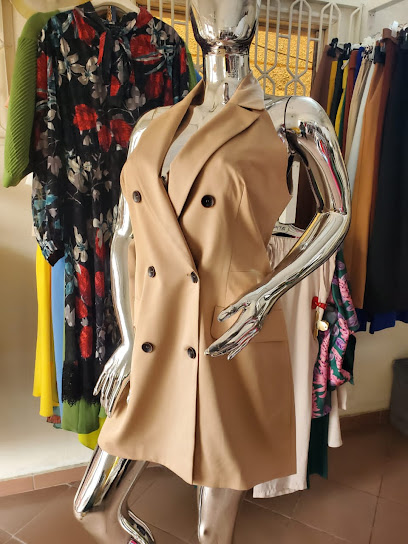
Crystal'Shop
Explore Crystal'Shop, a shoe store that offers a captivating selection of footwear, perfect for enhancing your travel wardrobe with style.
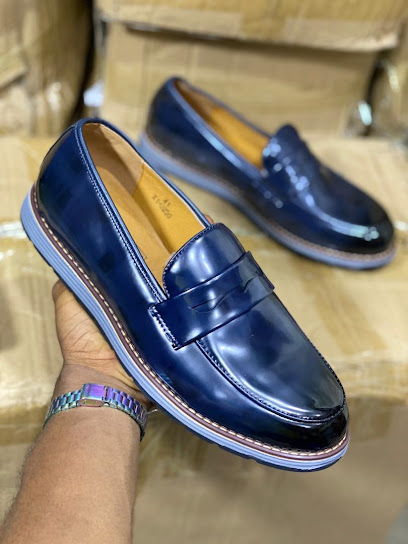
Evaket : Magasin et Courses en Ligne
Explore Evaket in Cotonou for a unique shopping experience featuring books, kids' clothing, and delightful local cuisine.
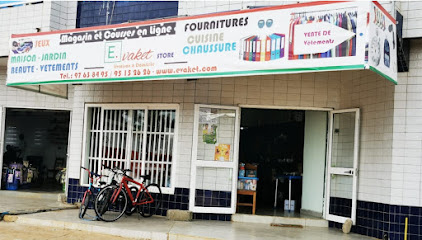
WATCH-SHOP BENIN
Explore the elegance of fine timepieces and stylish sunglasses at WATCH-SHOP BENIN, your premier accessory destination in Cotonou.
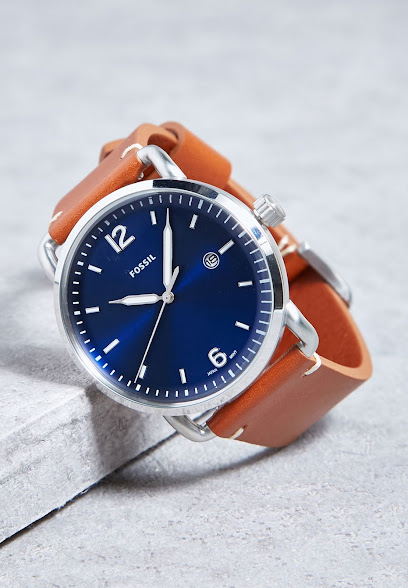
Essential bars & hidden hideouts
Code Bar
Immerse yourself in Cotonou's vibrant nightlife at Code Bar, where great drinks and a lively atmosphere await every evening.
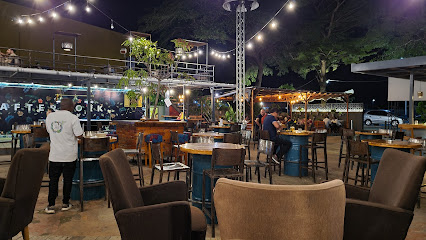
La Villa Classic Lounge Bar
Discover the vibrant atmosphere of La Villa Classic Lounge Bar in Cotonou, where local flavors meet a cozy ambiance for a perfect night out.
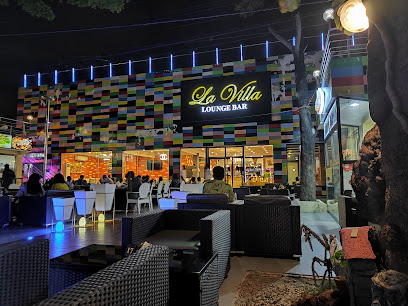
LE COMPLEX
Discover the vibrant nightlife of Cotonou at Le Complex, where great drinks and good company create unforgettable memories.
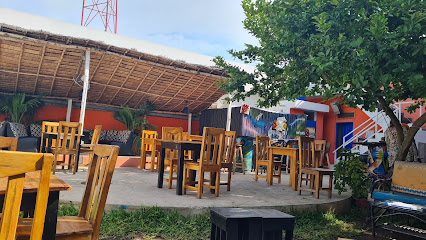
La congolaise bar
Discover the vibrant nightlife at La Congolaise Bar, where local culture, music, and great drinks come together in Cotonou.
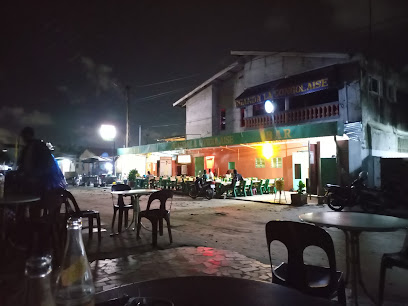
Jammin Bar
Jammin Bar in Cotonou: A lively live music bar offering delicious local cuisine and a vibrant atmosphere for unforgettable nights.
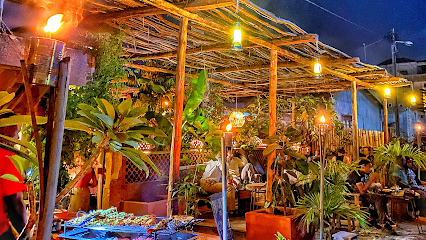
Bar le Consulat
Experience the vibrant culture of Cotonou at Bar le Consulat, the perfect bar to relax and enjoy local drinks.
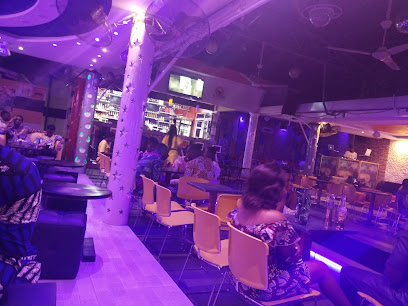
Le Select Bar Cotonou
Discover the lively atmosphere of Le Select Bar in Cotonou, where great drinks and vibrant nightlife come together for an unforgettable experience.
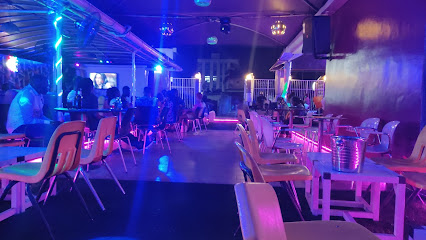
The Garden Rooftop - Bar - Restaurant
Experience the exquisite blend of culinary delights and stunning views at The Garden Rooftop, Cotonou's premier bar and restaurant.
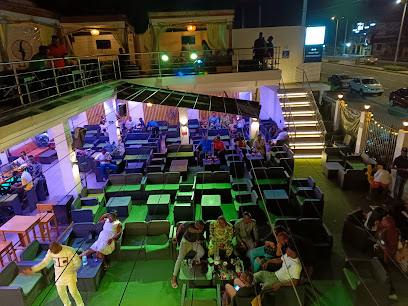
Parking Bar
Experience the vibrant nightlife at Parking Bar in Cotonou, where fun meets affordability in a lively atmosphere.
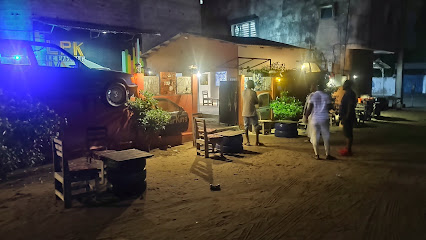
Homeboy lounge bar
Experience Cotonou's nightlife at Homeboy Lounge Bar, where vibrant music meets delicious drinks in a lively atmosphere.
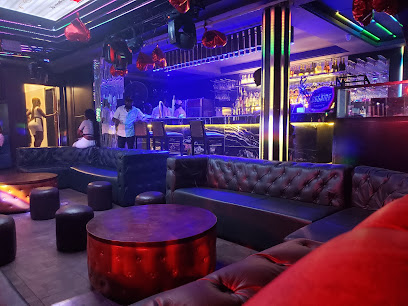
Zone 5 Bar
Experience the vibrant nightlife of Cotonou at Zone 5 Bar, where local culture meets a lively atmosphere and diverse drink selection.
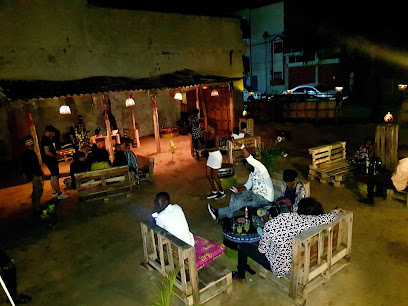
Veniz Lounge-Bar/Restaurant
Discover the vibrant nightlife at Veniz Lounge-Bar/Restaurant in Cotonou, renowned for its exquisite cocktails and delectable cuisine.
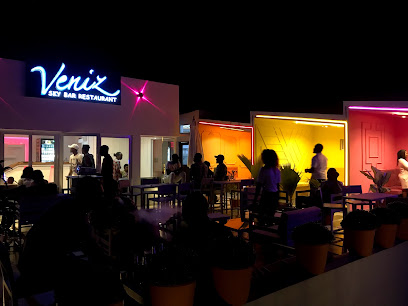
Three One lounge bar restaurant
Experience the vibrant atmosphere and diverse culinary delights at Three One Lounge Bar Restaurant in Cotonou, the perfect spot for relaxation and entertainment.
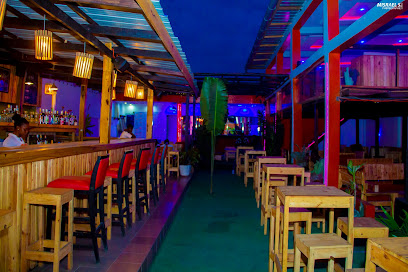
Le Djabi lounge bar
Discover the lively Le Djabi Lounge Bar in Cotonou, where delicious tapas and vibrant nightlife create unforgettable experiences.
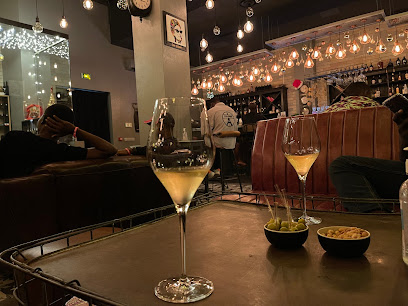
Local Phrases
-
- HelloSalut
[sa-LOO] - GoodbyeAu revoir
[oh re-VWAH] - YesOui
[WEE] - NoNon
[noh] - Please/You're welcomeS'il vous plaît/De rien
[seel voo PLEH / duh RYAN] - Thank youMerci
[mehr-SEE] - Excuse me/SorryExcusez-moi/Désolé
[ex-KYU-zay mwah / day-zoh-LAY] - How are you?Comment ça va?
[koh-mahn sah vah?] - Fine. And you?Bien. Et toi?
[byen. ay twah?] - Do you speak English?Parles-tu anglais?
[parl too ahn-GLAY?] - I don't understandJe ne comprends pas
[zhuh nuh kohm-PROHN pah]
- HelloSalut
-
- I'd like to see the menu, pleaseJe voudrais voir le menu, s'il vous plaît
[zhuh voo-DRAY vwahr luh meh-NOO, seel voo PLEH] - I don't eat meatJe ne mange pas de viande
[zhuh nuh mahnj pah duh vyand] - Cheers!Santé!
[sahn-TAY] - I would like to pay, pleaseJe voudrais payer, s'il vous plaît
[zhuh voo-DRAY pay-YAY, seel voo PLEH]
- I'd like to see the menu, pleaseJe voudrais voir le menu, s'il vous plaît
-
- Help!Au secours!
[oh se-KOOR!] - Go away!Allez-vous en!
[ah-lay vooz ahn!] - Call the Police!Appelez la police!
[ah-peh-LAY lah poh-LEES!] - Call a doctor!Appelez un médecin!
[ah-peh-LAY uhn meh-deh-SAN!] - I'm lostJe suis perdu
[zhuh swee pair-DOO] - I'm illJe suis malade
[zhuh swee mah-LAHD]
- Help!Au secours!
-
- I'd like to buy...Je voudrais acheter...
[zhuh voo-DRAY ah-shuh-TAY...] - I'm just lookingJe regarde juste
[zhuh ruh-GAHRD joo-stuh] - How much is it?Combien ça coûte?
[kohm-BYEN sah koot?] - That's too expensiveC'est trop cher
[say troh shair] - Can you lower the price?Pouvez-vous baisser le prix?
[poo-VAY voo bay-SAY luh pree?]
- I'd like to buy...Je voudrais acheter...
-
- What time is it?Quelle heure est-il?
[kell uhr ay-TEEL?] - It's one o'clockIl est une heure
[eel ay tun uhr] - Half past (10)Dix heures et demie
[dees uhr ay deh-MYUH] - MorningMatin
[mah-TAN] - AfternoonAprès-midi
[ah-PRAY mee-DEE] - EveningSoir
[swahr] - YesterdayHier
[yay] - TodayAujourd'hui
[oh-ZHOOR-dwee] - TomorrowDemain
[duh-MAN] - 1Un
[uhn] - 2Deux
[duh] - 3Trois
[twah] - 4Quatre
[cat-ruh] - 5Cinq
[sank] - 6Six
[sees] - 7Sept
[sept] - 8Huit
[wheat] - 9Neuf
[nuff] - 10Dix
[dees]
- What time is it?Quelle heure est-il?
-
- Where's a/the...?Où se trouve...?
[oo suh troov...?] - What's the address?Quelle est l'adresse?
[kell ay la-dress?] - Can you show me (on the map)?Pouvez-vous me montrer (sur la carte)?
[poo-VAY voo muh mohn-TRAY (soor lah kart)?] - When's the next (bus)?Quand est le prochain (bus)?
[kahn ay luh pro-SHAN (bus)?] - A ticket (to ....)Un billet (pour ....)
[uhn bee-YAY (poor ....)]
- Where's a/the...?Où se trouve...?
History of Cotonou
-
Cotonou, which means 'mouth of the river of death,' was originally a small fishing village settled by the Aja people. The town grew in importance due to its strategic location between the Atlantic Ocean and the Nokoué Lake, making it a crucial point for trade and transportation.
-
In the late 19th century, Cotonou became a focal point of French colonial interests in West Africa. In 1868, the French signed a treaty with the Kingdom of Dahomey, which allowed them to establish a trading post in Cotonou. The city subsequently became a French protectorate in 1892, leading to rapid urbanization and the development of infrastructure.
-
Cotonou's port, built in the early 20th century, significantly boosted the city's economic status. It became one of the largest and busiest ports in West Africa, facilitating the export of palm oil, cotton, and other goods. The port remains a vital economic engine for Benin, attracting businesses and fostering international trade.
-
Benin gained independence from France on August 1, 1960. Post-independence, Cotonou continued to grow as the economic capital of Benin, even though Porto-Novo is the official capital. The city saw significant modernization efforts, including the expansion of its road networks, educational institutions, and healthcare facilities.
-
Cotonou has been the backdrop for several significant political events, including the National Conference of 1990, which led to the establishment of a multiparty system and democratic governance in Benin. This pivotal event marked the beginning of political stability and economic reforms in the country.
-
Cotonou is a vibrant cultural hub, reflecting the diverse ethnic and cultural backgrounds of its inhabitants. The city's markets, such as Dantokpa Market, are bustling centers of activity where one can find a variety of local crafts, foods, and textiles. The influence of Vodun (voodoo) religion is also evident in the city's cultural practices and festivals.
Cotonou Essentials
-
Cotonou is accessible via the Cotonou Cadjehoun Airport (COO), which serves as the primary international gateway to Benin. Direct flights are available from major cities in Europe and other parts of Africa. From the airport, you can take a taxi to your accommodation, which is the most convenient option. Alternatively, some hotels offer shuttle services for their guests.
-
Cotonou offers a variety of transportation options. Zemidjans (motorbike taxis) are very popular and can navigate through traffic quickly. Taxis are also widely available and can be hired for short trips or the entire day. For longer distances, buses and minivans (known as 'tokpa tokpa') are available, though they can be crowded and less comfortable. Car rentals are an option but driving can be challenging due to traffic and road conditions.
-
The official currency in Benin is the West African CFA franc (XOF). Credit cards are accepted in larger hotels, restaurants, and supermarkets, but it is advisable to carry cash for smaller establishments and markets. ATMs are available throughout Cotonou, particularly in the city center and near major hotels. Be sure to inform your bank of your travel plans to avoid any issues with card transactions.
-
Cotonou is generally safe for tourists, but it is important to remain vigilant. Petty crime such as pickpocketing and bag snatching can occur, especially in crowded areas like Dantokpa Market. Avoid walking alone at night, particularly in neighborhoods like Akpakpa and Saint Michel, which have higher crime rates. Always use registered taxis and avoid displaying valuables in public.
-
In case of emergency, dial 117 for the police, 118 for the fire department, and 112 for medical emergencies. Major hospitals include the National University Hospital Center HKM and the Bethesda Hospital. It is advisable to have travel insurance that covers medical emergencies. For minor health issues, there are numerous pharmacies throughout Cotonou where you can purchase over-the-counter medications.
-
Fashion: Do dress modestly, especially when visiting religious sites. Avoid overly revealing clothing. Religion: Do respect local customs and traditions. Remove your shoes when entering religious buildings. Public Transport: Do be courteous and patient. Don't argue with drivers or other passengers. Greetings: Do greet people with a handshake and always use your right hand. Eating & Drinking: Do try local dishes and accept invitations to dine with locals. Don't eat or drink with your left hand, as it is considered impolite.
-
To experience Cotonou like a local, visit the bustling Dantokpa Market, where you can find everything from fresh produce to traditional crafts. Enjoy a stroll along the Fidjrosse Beach, especially during sunset. Engage with locals, who are generally friendly and eager to share their culture with visitors. Don't miss trying local dishes like 'pâte' (a type of dough made from maize or cassava) and 'akassa' (fermented maize dough).
Trending Landmark in Cotonou
-
General Mathieu Kerekou Friendship Stadium
-
Dantokpa Market
-
Red Star Square
-
CanalOlympia Wologuèdè
-
Église Catholique Saint Michel
-
Code Bar
-
Congress Palace
-
Amazon Statue
-
Institut Français du Bénin
-
Obama beach
-
Place du Souvenir, ex Place des Martyrs
-
Fidjrossè Beach
-
Bulgarian Square Georgi Dimitrov
-
Toffa
-
L'Imprévu
Nearby Cities to Cotonou
-
Things To Do in Porto-Novo
-
Things To Do in Ouidah
-
Things To Do in Lokossa
-
Things To Do in Aneho
-
Things To Do in Lagos
-
Things To Do in Abeokuta
-
Things To Do in Lomé
-
Things To Do in Notse
-
Things To Do in Atakpamé
-
Things To Do in Ibadan
-
Things To Do in Kpalimé
-
Things To Do in Ho
-
Things To Do in Koforidua
-
Things To Do in Accra
-
Things To Do in Benin City

















